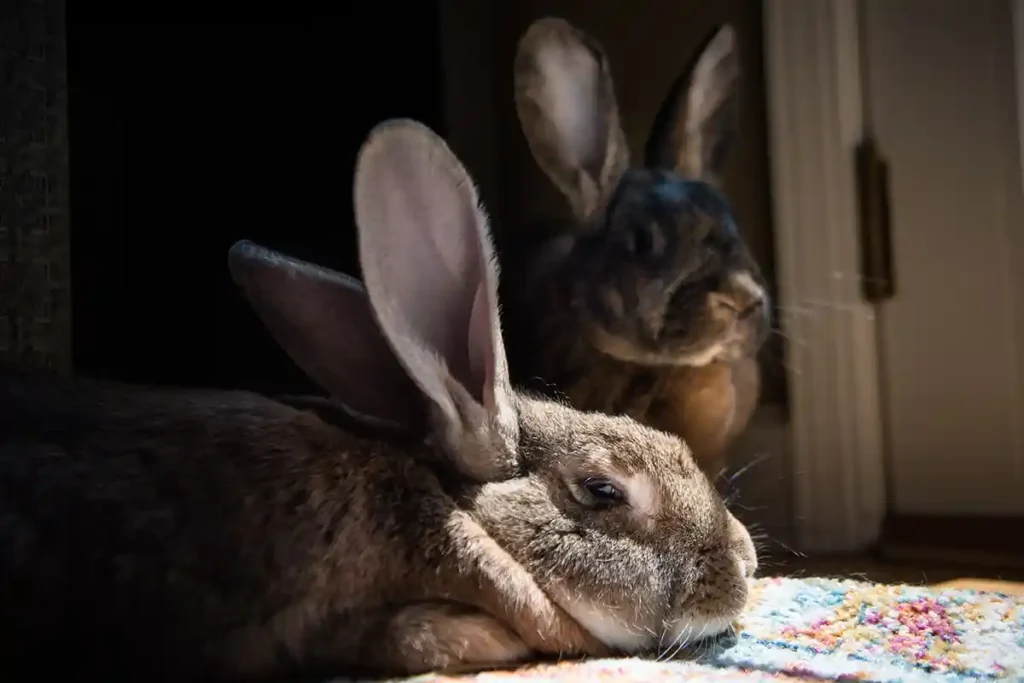Rabbits are highly sensitive to heat. Daily observation and interaction with your rabbit is key. Vigilance is especially crucial in the summer and other warm months of the year. A rabbit doesn’t sweat and can quickly die from overheating, and every bunny’s tolerance of heat is different.
How to Keep Your Rabbit Cool:
Shade. Ensure your bunny has access to shade, especially if confined to a cage or small room.
Fans. Use a circulating fan without direct airflow on your rabbit; drape a damp towel for cooler air. Don’t forget to bunny-proof the fan cord.
Mist. Mist your rabbit’s ears to help dissipate heat. Rabbits don’t sweat; they cool themselves via bloodflow to their large ears. Keeping your bunny’s ears cool helps to keep the whole bunny cool.
Ice. Add a few ice cubes to the water crock to encourage drinking and provide a cool surface to lay against.
Ceramic Tile. Place a ceramic tile or stone in the cage/pen/room for your bunny to rest on as they stay cooler and can wisk heat from your bunny’s body.
Reduce their coat. Remove/brush loose fur from your rabbit’s coat, considering a shorter summer coat for long-haired rabbits.
Frozen water bottles. Freeze 2-liter bottles filled with water and place them in your bunny’s area for them to lean against.
Fresh cool greens. Ensure your bunny gets enough fresh green veggies for hydration.
Older and Special Needs Rabbits Require Vigilance
Be especially vigilant for senior buns (5 years +) and those that are overweight or have other health issues. Older and disabled rabbits tend to be to be more sedentary and may not get up to drink water if they are too hot. Dehydration or heat stroke can happen quickly.
Recognize & Treat Heat Stroke
Recognize signs of heat stroke: panting, lethargy, disorientation, seizures, salivation, weakness, or unusually red or pale mucus membranes around the nose and eyes.
DO NOT SUBMERGE your rabbit in cold water; instead, dampen their ears and body with cool water. Too much cold too quickly can cause shock. Seek immediate veterinary attention; do not wait.
Recognize & Treat Fly Strike
Watch for and treat Fly Strike (myiasis), particularly in aging, disabled, or long-haired rabbits, and maintain good hygiene to prevent attracting flies.

